Scientific Names: Artemisia absinthium L.
Synonym: Absinthium vulgare Lam.
English Name: Wormwood
Other Names in English (UK, USA, Canada, South Africa, Australia, New Zealand): Absinth Sagewort, Absinthe, Absinthium, Common wormwood
Family: Asteraceae
GENERAL DATA
Plant Parts: Stems, leaves, flowers, flower oil
Cultivation Mode: Wild collection/ Cultivated
In Manufacturing: Pharmaceutical, alcoholic and non-alcoholic drinks, skincare, haircare, oil, extract, hydrosol
PRODUCT NAME IN DIFFERENT LANGUAGES
Persian Name: افسنطین/ Afsantin
German Name (Deutschland, Austria, Switzerland): Absinth, Wermut, Echter Wermut
French Name (France, Belgium, Switzerland, Quebec): Absinthe, Armoise absinthe, Armoise amère
HARVEST CALENDAR
Feb
Mar
Apr
May
Jun
Jul
Aug
Sep
Oct
Nov
Dec
To order Absinthe, please contact us.
About Artemisia Absinthium
Artemisia absinthium has many branches and leaves and its plant height reaches one meter.
The stems of this plant are relatively thick and there are clearly defined longitudinal grooves on their outer surface.
The lower leaves of this plant have very deep cuts that divide the leaves into smaller parts. But the leaves of the upper part usually have only two deep cuts that divide the leaves into three main parts. The stems and leaves of wormwood are hairy and silvery green. The taste of absinthe leaves is very bitter.
The flowers of the absinthe plant are small, yellow, and almost like a hemisphere.
Its seeds are very small, slightly elongated, and brown in color.
There are very fine fibers in the Artemisia absinthium plant, which are concentrated when grinding the plant and become like cotton. All parts of the absinthe plant have a strong and aromatic scent.
Wormwood Temperament
Second degree of hot and dry.
Artemisia Absinthium Chemical Constituents
Artemisia absinthium contains many phytochemical compounds namely, lactones, terpenoids (e.g., trans-thujone, γ-terpinene, 1,4-terpeniol, myrcene, bornyl acetate, cadinene camphene, trans-sabinyl acetate, guaiazulene, chamazulene, camphor, and linalool), essential oils, organic acids, resins, tannins, and phenols. It also contains flavonoids (e.g., quercitin), flavonoid glycosides such as isorhamnetin-3-O-rhamnose glucoside, isoquercitrin, quercitin-3-O-D-glucoside, quercetin-3-O-rhamnoglucoside, and isorhamnetin-3-O-glucoside, and phenolic acids (coumaric, syringic, salicylic, chlorogenic, and vanillic acids) which contribute to free radical scavenging mechanism. In addition, Ahamad et al.
A. absinthium extract contains isoflavone glycosides that are characterized as Artemisia isoflavonyl glucosyl diester and bis-isoflavonyl dirhamnoside. Previous studies documented that A. absinthium essential oils are rich in myrcene, trans-thujone, cis-epoxyocimene, cis-chrysanthenyl acetate, and trans-sabinyl acetate are the most common compounds found in. The medicinal efficacy of wormwood is often based on its bioactive ingredient in the dimeric guaianolides absinthins, as it is used more effectively than other Artemisia species as it contains approximately 0.2% of absinthin. In addition, fresh wormwood is considered the best source of azulene, yielding between 40 and 70 mg % of azulene.
Wormwood Health Benefits
Absinthe is appetizing, astringent, yellow bile laxative, cleans up the chest, lung, and stomach, improve breast milk supply, sudorific, anthelmintic, anti-inflammatory, liver tonic, anal tonic, uterine tonic, poison antidote and excess moisture remover.
The extract of this plant is a liver blocker opener, opener of digestive tracts and appetizing, and has stronger actions and properties than the plant itself.
Common Wormwood relieves headache, facial nerve paralysis, paralysis, paresis, tremor, epilepsy, stroke and heart attack, nightmares, dizziness, melancholia, eye diseases, ear diseases, pharynx and mouth diseases, flatulence, chronic diarrhea, phlegm diseases, stomach diseases, liver diseases, uterine edema, uterine secretions, hemorrhoids, neuralgia, relief of fatigue, alopecia areata, lamellar ichthyosis, jaundice, painful menstruation, fever, joint pain, and splenitis.
Its tea is a stomach tonic, a very strong appetite suppressant, and a chest and lung enema from yellow bile. It also repels the rotten vapors of the stomach, makes the complexion beautiful, corrects mal-temperament, and is useful for relieving side pain, pelvic pain, facial swelling, body swelling, polydipsia, joint pain, anal cold diseases, chronic infectious fevers, and fever which is caused by 2 or more humors.
Drinking 80 grams of its decoction for ten days in a row helps to treat jaundice and eliminate anorexia caused by moist or coldness. Drinking it with honey expels rotten and warm stomach humors and is useful for facial nerve paralysis, paralysis, paresis, tremor, epilepsy, stroke, nightmares, and splenitis.
Drinking 20 grams of Absinthe decoction with vinegar removes warm stomach waste, improves hemorrhoids, anal fissures and diphtheria caused by eating poisonous mushrooms. Drinking its decoction or eating cooked Absinthe with rice or lentils is anthelmintic, worm remover and laxative.
A daily sip of 50 grams Absinth Sagewort and Dodder (Cuscuta epithymum) decoction will help to cure melancholia. Eating absinthe with Dodder (Cuscuta epithymum) and Lavender (Lavandula angustifolia) is black bile laxative. Drinking a decoction of Absinthe with Aloe Resin improves dizziness caused by the predominance of yellow bile and phlegm.
If you dissolve some extract of this plant in water, taking 28 grams of it every day will cure melancholia, which is caused by yellow bile. Drinking its extract is useful for preventing heart attack.
Drinking and poultice of its extract expels yellow bile from stomach and relieves mal-temperament, beautifies the complexion and is useful for old fevers, the beginning of fatty liver, polydipsia, jaundice, swelling of the face, swelling of the body, swelling of the spleen, alopecia areata, and alopecia. Its extract drop in the ear relieves the pain caused by earworm, labyrinthitis, or water accumulation in the ear.
Gargling Absinthe decoction is useful for facial nerve paralysis. Drawing its kohl in the eyes is useful for brightening the eyesight. Its suppository along with beeswax removes tapeworm.
Its poultice and drinking 20 grams of Absinth Sagewort decoction cures scorpion stings. Its poultice with water helps in the treatment of scarlet fever, alopecia areata and common alopecia. Absinth poultice with honey is an emmenagogue.
Its poultice which is cooked with salt is antiseptic and healing for infected wounds and blisters. A concentrated poultice of Absinthe with vinegar relieves severe joint pain.
Absinthe honey is useful for liver diseases.
Wormwood Dose
Absinthe alone 3 to 6 grams.
As a decoction with other herbs up to 5 grams.
Its extract up to 2.5 grams.
Wormwood Side Effects
Absinth Sagewort is harmful to hot temperaments stomach.
Absinthe causes brain dryness and headaches.
Absinthe extract is more harmful than its herb and causes anxiety, headache and stomach weakness.
Wormwood Modifiers
Water Lily, Pomegranate juice, Gum Tragacanth, and Rose Water for hot temperaments.
Anise and Terebinth gum for cold temperaments.
To order dried Wormwood herb, please contact us.
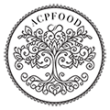

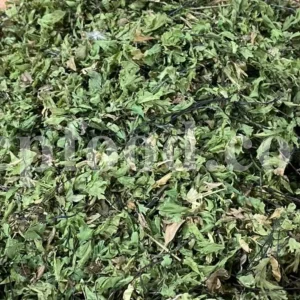
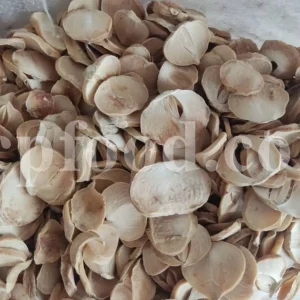
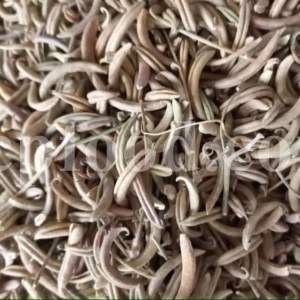
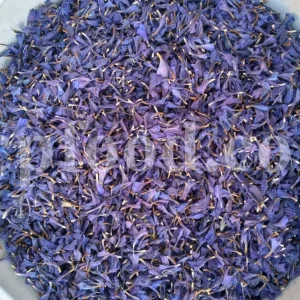
Reviews
There are no reviews yet.